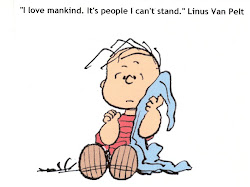 My friend and work colleague, Mark, lives out in the New Hampshire countryside where people have elbow room (and a bit of a commute into work). Mark is a genuine Yankee, having been born and raised in Bethel, Maine, a pretty little town on the Androscoggin River (prettier now that its water quality is much improved from the 1960s and 1970s). Mark has a wealth of maple trees on his property and like any good Yankee, “waste not, want not,” so he taps them in the Spring and boils the sap into a fine maple syrup, which he sells by the quart jug.
My friend and work colleague, Mark, lives out in the New Hampshire countryside where people have elbow room (and a bit of a commute into work). Mark is a genuine Yankee, having been born and raised in Bethel, Maine, a pretty little town on the Androscoggin River (prettier now that its water quality is much improved from the 1960s and 1970s). Mark has a wealth of maple trees on his property and like any good Yankee, “waste not, want not,” so he taps them in the Spring and boils the sap into a fine maple syrup, which he sells by the quart jug.Side story. I love Bob Newhart’s humor and the characters he’s created over the years. In his fist sitcom series (the Chicago psychologist), he had actor Tom Poston on several times in quest spots as his former college roommate, “The Peeper” from Vermont. Stereotypically, The Peeper loved maple syrup on everything and therefore traveled with his own supply at the ready to pour over steak, vegetables, whatever. The Peeper arrives at Newhart’s Chicago apartment with his stash and Newhart remarks that they’ll have to make pancakes while The Peeper is there. Poston, playing the Yankee to the hilt, looks pensive and responds something to the effect, “Pancakes? Huh, never thought of putting maple syrup on those.”
In chatting with Mark at work today we got talking about the unusually mild winter this year and how that has caused concern about the maple trees and the production of sap. Generally, it’s accepted that you need mild to warm days and cold nights to really develop the best sap volume-wise and quality- wise. But when winter starts to end early, as in this year, the maple tappers out there, both amateur and commercial, are of different minds regarding the “proper” time to start tapping the sap.
Now my friend Mark has this theory that early in the season (i.e., late winter), the maple sap is mostly starch that has not yet turned into sugar. So the later you can wait, the better because the sugar content of the collected sap will be higher and therefore you don’t have as much water to boil off to product the liquid gold of maple syrup. He claims he’s tested early sap at 1% sugar content and late sap (say, first part of March) at as much as 5% sugar. That’s a huge difference.
So, I’m totally buying into Mark’s theory, but then ask him what he is going to do as far as the timing of starting his taps this year. “Oh, he says with a wide Yankee grin, I’m not tapping this year. I have enough finished syrup left over from last year’s effort and besides, I hear it’s best if you rest your maple trees every other year.” “Rest the trees?” I say. “I don’t think I’d believe that one unless I read it in the Old Farmer’s Almanac.” Then it's good as gospel.

No comments:
Post a Comment